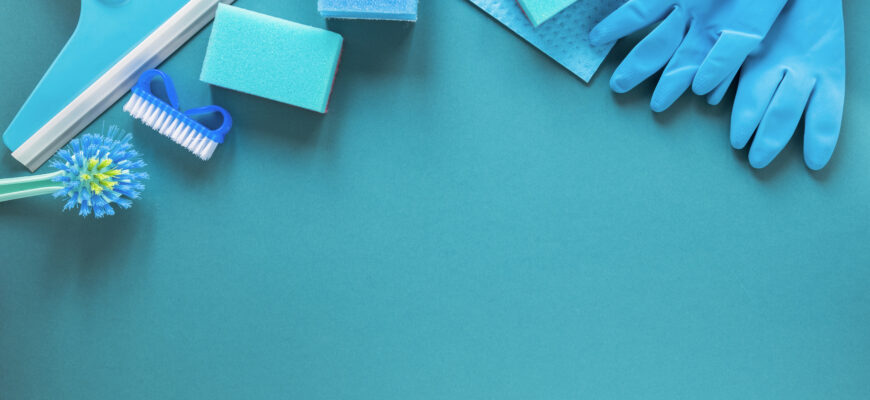Guide to Essential Cleaning Equipment
Keeping a space clean and tidy requires the right set of tools. Here’s a guide to the essential cleaning equipment you’ll need for various cleaning tasks:
1. Basic Cleaning Tools
- Broom and Dustpan: Essential for sweeping floors and gathering loose dirt and debris.
- Vacuum Cleaner: Ideal for carpets, rugs, and can be used on hard floors. Look for models with HEPA filters to trap allergens.
- Mop and Bucket: For mopping floors. Microfiber mops are efficient and easy to clean.
- Dusters: Feather dusters or microfiber dusters for removing dust from surfaces.
2. Surface Cleaning Equipment
- Sponges and Scrubbers: Use different types for various surfaces (e.g., abrasive for tough grime, soft for delicate surfaces).
- Microfiber Cloths: Highly effective for dusting, wiping, and polishing.
- Squeegee: Essential for cleaning windows and mirrors without leaving streaks.
3. Specialized Cleaning Tools
- Toilet Brush: For cleaning inside the toilet bowl.
- Grout Brush: For scrubbing grout lines in tile floors and walls.
- Bottle Brush: Useful for cleaning inside narrow containers and bottles.
4. Cleaning Agents
- All-Purpose Cleaner: Suitable for a variety of surfaces.
- Disinfectant: For killing germs and bacteria on surfaces.
- Glass Cleaner: Formulated to leave glass surfaces streak-free.
- Floor Cleaner: Choose one suitable for your specific floor type (hardwood, tile, laminate).
- Bathroom Cleaner: Formulated to tackle soap scum, mold, and mildew.
5. Organizational Tools
- Cleaning Caddy: A portable container to carry your cleaning supplies from room to room.
- Storage Solutions: Shelves, hooks, and containers to keep cleaning tools organized.
6. Protective Gear
- Gloves: To protect your hands from harsh chemicals and dirt.
- Face Mask: Useful when dealing with dust or strong cleaning agents.
- Apron: To protect your clothes from splashes and stains.
7. Waste Disposal
- Trash Bags: Various sizes for different types of waste.
- Recycling Bins: For separating recyclable materials from general waste.
Tips for Effective Cleaning
- Regular Maintenance: Clean regularly to prevent build-up of dirt and grime.
- Proper Technique: Use the right tool and cleaner for each job to avoid damage and ensure effective cleaning.
- Organize Your Supplies: Keep your cleaning supplies well-organized and accessible to make the process efficient.
Running a successful cleaning business requires a variety of cleaning chemicals to handle different types of dirt, grime, and stains. Here is a comprehensive list of essential cleaning chemicals that every cleaning business should have:
1. General-Purpose Cleaners
- All-Purpose Cleaner: Versatile for cleaning a wide range of surfaces, including countertops, appliances, and fixtures.
- Multi-Surface Cleaner: Suitable for various surfaces like wood, tile, and laminate without causing damage.
2. Disinfectants and Sanitizers
- Disinfectant Spray/Wipes: For killing germs and bacteria on high-touch surfaces such as doorknobs, light switches, and countertops.
- Sanitizing Solution: For use in kitchens and food preparation areas to ensure surfaces are safe for food contact.
3. Specialized Surface Cleaners
- Glass Cleaner: Formulated to leave windows, mirrors, and glass surfaces streak-free and clear.
- Wood Cleaner/Polish: To clean and maintain wooden surfaces, leaving a polished finish.
- Stainless Steel Cleaner: For cleaning and shining stainless steel appliances and fixtures.
4. Floor Cleaners
- Hardwood Floor Cleaner: Gentle and effective for cleaning wooden floors without damaging the finish.
- Tile and Grout Cleaner: Designed to remove dirt and stains from tile surfaces and grout lines.
- Carpet Shampoo/Extractor Solution: For deep cleaning carpets and rugs using carpet cleaning machines.
5. Bathroom Cleaners
- Toilet Bowl Cleaner: Specifically formulated to remove stains and disinfect the inside of toilet bowls.
- Tile and Tub Cleaner: Effective against soap scum, hard water stains, and mildew in bathrooms.
- Mildew Remover: For removing and preventing mold and mildew growth in damp areas.
6. Degreasers
- Kitchen Degreaser: Powerful cleaner for cutting through grease and grime on kitchen surfaces, including stovetops, ovens, and exhaust hoods.
- Heavy-Duty Degreaser: For industrial and commercial kitchens where grease build-up is significant.
7. Odor Control
- Air Fresheners: To keep spaces smelling fresh and pleasant.
- Odor Neutralizers: Specifically designed to eliminate unpleasant odors rather than just masking them.
8. Laundry Products
- Laundry Detergent: For cleaning linens, uniforms, and other washable items.
- Fabric Softener: To keep fabrics soft and reduce static cling.
- Stain Remover: For pre-treating tough stains on fabrics.
9. Eco-Friendly Options
- Green Cleaners: Biodegradable and environmentally friendly options for clients who prefer sustainable cleaning solutions.
- Non-Toxic Cleaners: Safe for use around children and pets, often made from natural ingredients.
- Read Labels: Always read and follow the instructions on the labels of cleaning chemicals.
- Use Appropriate PPE: Wear gloves, masks, and protective eyewear when handling cleaning chemicals.
- Proper Ventilationhttps://alionservice.com/the-best-cleaning-products/: Ensure good ventilation when using chemicals to avoid inhaling fumes.
- Dilute Correctly: Follow dilution instructions to ensure effectiveness and safety.
- Store Safely: Keep chemicals in their original containers and store them in a cool, dry place away from children and pets.
- Disposal: Dispose of unused or expired chemicals according to local regulations.
Conclusion
A well-stocked inventory of cleaning chemicals is essential for the efficient and effective operation of a cleaning business. By using the right chemicals for each task, you can ensure high-quality cleaning results and maintain a safe and healthy environment for your clients.






